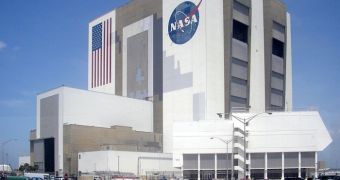There have been a lot of discussions concerning the path NASA should follow related to its current and future space missions, but no solid conclusion has been drawn yet. The collaboration between Barack Obama's new NASA transition team and Michael Griffin, NASA's current administrator, has not been exactly fructuous, approaches in various aspects come from several sources, and it's hard to make a decision that would please everybody. A new review from MIT's Space, Policy and Society Research Group is aimed to shed some light on the situation.
The team that devised the independent review during two years’ worth of monitoring and data assessment is comprised of policy analysts, engineers, historians, and a former astronaut. It aims at offering a proper direction to NASA's human spaceflight program. MIT met the transition team and a number of politicians at Capitol Hill, only to find that the latter are undecided about the best way of tackling the issue of the space program.
"Our major recommendation is that the Obama administration should rethink the Bush plan," was the conclusion of MIT's technology historian and review leader David Mindell, as cited by Wired. "The problem with the current plan is that it's overambitious and underfunded and not really thought through. Our recommendation is that the Obama team issue a new policy." There's just not enough money to afford retiring the space shuttle, complete the International Space Station, build the Constellation program, and use it to carry manned missions to the Moon and Mars.
"The Bush plan has never been funded with the degree it was supposed to. We’re not trying to make a case that NASA’s budget needs to be doubled, because that's just not viable in this environment. But going on the path they're going on is going to kill people, simple as that," explained Mindell. The team stresses the importance of international collaboration, mainly with the new competitors in the space race, like India and China, especially by not retiring the shuttle before all missions it was supposed to perform (not only by the US) are carried out.
Space fleet's retirement would leave other countries with no (or little) means to get to the ISS, where they also conduct extensive research. The review also stated that manned and robotic missions should be kept in a more even balance, as currently humans are overexposed to the risks of space travel, exploration and research. But hopes are still high, says Mindell, "I think there's a lot of new interest in space. NASA's building new hardware for the first time in a generation. Students are going into aerospace engineering in a way they weren't five years ago. There is a kind of new space age coming, and it's all very exciting".

 14 DAY TRIAL //
14 DAY TRIAL //